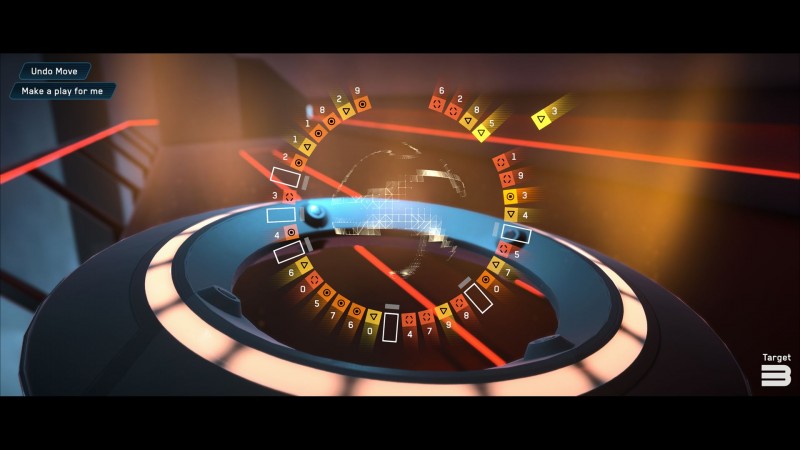Taking established fictional universes in new directions is an idea we should all get behind. Too often, licensed games hew too closely to established characters or scenarios, and those beloved fantasy frameworks are never given a chance to evolve. With Tron: Identity, Bitel Games takes the venerable Tron franchise and tries something completely different – a visual novel with light touches of puzzle gameplay. The novelty alone is worth some excitement. However, despite being a fresh attempt, this bite-sized release falls short in a few key areas.
Tron: Identity equals a classic noir detective story, assuming that your investigator lived in a computer, wore a disc containing his memories, and was constantly surrounded by colored lights. The whole story unfolds within an extensive repository of information on the “Grid” and it is up to you to solve the mystery of a strange explosion and possible theft that took place there. Along the way, you meet a handful of other characters, or “programs” in the local parlance, and make choices that will affect how each feels about you and how receptive they may be to your inquiries. The whole affair unfolds through text sets written beneath the art of the characters and locations within the repository.
I love the limited scope and tight narrative constraints that are on offer. But I can’t say I ever felt like I was solving a mystery. New pieces of information popped up at regular intervals, but I never felt like a detective putting all the pieces together. When the big picture revealed itself, it felt more like a surprising plot twist than a satisfying click of everything finally making sense.
Nevertheless, the written descriptions and dialogue portray an atmospheric story and help create subtlety around the mostly still image scenes. I enjoyed Bitel’s different take on the Tron world and the developer found ways to add new twists to that established novel. I also like branching decision trees, allowing each player to craft their own take on the narrative, perhaps even with different characters who live or die by the end.
Along the way, my character has the uncanny ability to help heal and clarify the character’s memories, which have been inexplicably damaged by recent events. These repairs take the form of unusual puzzle games of matching numbers and card suits in particular patterns. Players repeat various variations of this puzzle structure several times in the few hours it takes to complete one play. While not excitable, I never warmed to mechanics and usually found that trial and error was the best way to wrap them up. On a subsequent playthrough to explore the different story paths, I was happy to stop and skip the puzzles altogether — a choice that was wise to include based on my experience.
Tron: Identity flirts with some pretty weighty themes in its brief playtime. Issues of fate, the meaning of memory, and purpose in the face of extinction – all of these and more are explored, primarily in relation to the game’s subtitle: Identity. In the end, whatever your choice, the game doesn’t try to make any particularly conclusive statements on those topics. But it’s heartening to see a diverse cast of characters take on these issues during a crisis.
While I appreciate Tron: Identity’s unique structure, I never found myself drawn in and engrossed in the story as it unfolded. Everything feels authentic to the Tron universe, and fans like me should appreciate the new wrinkles in the setting. But even with some interesting ideas, I was ultimately a user who couldn’t manage to be too interested in these programs and their problems.
